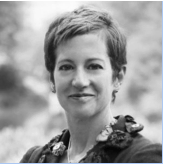
Susan Meisel, Corporate Deputy General Counsel, Sony Music Entertainment, on building an in-house career, working at the intersection of technology and law, and business-focused lawyering.
Tell us about your role at Sony Music Entertainment.
I’m head of the transactional group at Sony Music Entertainment (SME). We’re the go-to group across the company for mergers and acquisitions, joint ventures, minority investments, real estate, trademark portfolio management, contests, and sweepstakes, among other things. We work globally as well; for example, our group worked with Sony Music Entertainment UK this past summer on its acquisition of Ministry of Sound Recordings Ltd.
You’ve worked at many organizations leading up to your role at SME. Can you talk a bit about your path to SME?
I started my legal career as a corporate associate at Simpson Thacher, focusing primarily on IPOs/ capital markets and M&A as well as some not-for-profit advisory work. I was particularly interested in intellectual property law, so I answered a blind advertisement from an electronic publishing company – which turned out to be a start-up within SME focused on creating CD-ROMs and video games. I joined as the second lawyer in the group. It was the early days of digital media and often the legal work felt like we were making things up as we went along.
A year later, a friend convinced me to leave and join Viacom New Media, another incipient digital media start-up within a larger organization. Viacom Media was largely focused on developing Viacom’s intellectual property and partnering with Viacom’s other properties (like MTV and VH1). The group was creating new business models, and so our in-house legal work was cutting edge and fast-paced.
When Viacom bought Blockbuster – and with it, Virgin Interactive – Viacom New Media was shut down. There were no comparable roles for me within Viacom, and I had a nine-month old baby, so I decided to spend time with my daughter and consider my next move.
A little more than a year later, a colleague from Simpson Thacher contacted me because her client, the Institute of International Education (the organization that runs the Fulbright program) was hiring their first in-house lawyer. I interviewed for the role eight months pregnant, got the job, and then spent the next few years building out the General Counsel role there from scratch.
Ultimately, I both outgrew the position and wanted to return to media, so I took the General Counsel position at Village Voice Media. When, after a few years, the company was sold to a competitor, I again found myself more interested in exploring my options than staying at the new organization. After running into an old colleague from Simpson, who was at that point the General Counsel of the Americas at Credit Suisse, he offered me a position covering the Asset Finance group at Credit Suisse.
In 2008, as the financial crisis obliterated asset finance businesses across the sector, my Credit Suisse position was eliminated. This turned out to be a blessing in disguise though. After networking like crazy, a former outside counsel from my Sony Electronic Publishing days told me about this Sony Music job – which is fantastic.
You’ve built two in-house legal departments from scratch. What are the most important strategies for building an in-house legal function?
The most important thing is to learn the business. Talk to as many business-side people as you can and try to learn what they do and what risks they face. The goal is figuring out the component parts of the business, how each person is contributing, and how you, as a lawyer, can help facilitate communication across various constituencies, complete projects, negotiate and close deals, and generally make things run more smoothly and effectively.
More generally, these conversations are important for relationship-building purposes. When issues arise, you want people to already trust you enough to reach out and listen to your advice. Finally, it’s important to take the time to understand the corporate and business culture because that overall culture applies to in-house lawyers too.
How have you managed the tension between the rapidly evolving digital media industry and the slower evolution of settled law?
Working at SME, there is always going to be this tension because we seem to be in a constant state of transition while at the same time focused on being cutting edge: business-wise, we need to distribute our music via the latest platform or service. Law, on the other hand, is typically slower to evolve than technology. Copyright law, for example, has very clearly not caught up to current digital media realities and so it’s just not always possible to know the exact parameters within which you are advising.
What I can do, however, is understand the parameters of our business deals and related technology. So I read incessantly, always looking to understand the next new technology or digital media innovation. Focusing on this helps me understand what the business people are focused on and, when I need to help make something happen, it puts me in a position to educate other players who might not yet understand the relevant technology or related issued.
What steps would you recommend for in-house lawyers who are looking to become more business-focused?
I recommend reading more than just the legal matters than come across your desk. Read any business-side materials you can – in particular, any internal business updates. Follow all business and technology news even tangentially related to your company.
Building relationships with finance colleagues is also critically important. Internal finance may be more conservative business-wise, but they have important information about risk that you might otherwise not have access to.
You’ve hired lawyers into a wide range of in-house environments. What skills do you view as critical to success in-house?
I focus on openness and flexibility. A great in-house lawyer is willing to do whatever is necessary to get a deal completed or project finished, so I look for lawyers who are interested in learning, who are open to new ways of doing things, and who pay attention to the world around them. Finally, in-house lawyers need strong people skills in order to build relationships of trust on the business side, collaborate and maneuver effectively within the organization.
For lawyers in relatively new in-house roles, what do you recommend doing in the first 100 days in a new role?
The first 100 days – the first year really – is the time to learn as much as possible. People will be patient with you and expect you to have questions. Take advantage of that: have lunch with as many people as possible, ask as many questions as you can, and read contracts from previous transactions to understand how things have been done in the past. Obviously, it’s important to demonstrate your work ethic during this period, but make sure to focus on studying the overall situation of the company and understanding your role within it.
